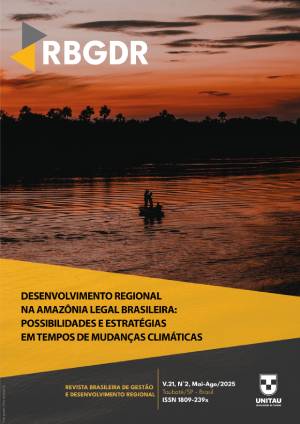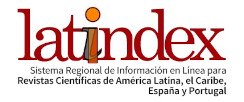ASSESSMENT OF THE IMPACT OF THE RURAL ENVIRONMENTAL REGISTRY ON DEFORESTATION REDUCTION AND ENVIRONMENTAL COMPLIANCE IN THE BRAZILIAN CENTRAL-WEST
DOI:
https://doi.org/10.54399/rbgdr.v21i2.7877Palavras-chave:
Rural Environmental Registry, Deforestation, Environmental Compliance, Agricultural Frontier, Public PolicyResumo
Agriculture and livestock production are fundamental to Brazil's economy and have undergone modernization
through advanced technologies, expanding operations via conversion of native vegetation areas. To promote
biome preservation, Brazil updated its Forest Code in 2012 and implemented the Rural Environmental
Registry (CAR) in 2014. This instrument, operationalized by the National CAR System (SICAR), compiles data
on rural properties to create an essential database for environmental and economic monitoring, control,
and planning, while also supporting anti-deforestation initiatives. This study evaluated CAR's impact on
deforestation and environmental compliance of rural properties in the Central-West agricultural frontier - a
strategic grain-producing region encompassing municipalities within the Legal Amazon. Two analyses were
conducted using SICAR data: the first on deforestation covered 229,386 properties registered between 2014-
2021 across 449 municipalities; the second on compliance analyzed 106,436 properties in 447 municipalities.
Annual deforestation data were obtained from Brazil's National Institute for Space Research (INPE), spanning
2008-2023. The analysis employed Callaway and Sant'Anna's (2021) multi-period Difference-in-Differences
methodology. Results showed deforestation reduction among small properties registered in 2015 and 2016,
with effects intensifying as treatment exposure duration increased. For environmental compliance, an increased
probability of regularization was observed only among small properties. These findings demonstrate that CAR's
effectiveness varies by property size, and that the identified heterogeneous effects can inform improvements
in environmental policies through differentiated strategies that reconcile ecosystem conservation with regional
economic development.
Downloads
Métricas
Downloads
Publicado
Como Citar
Edição
Seção
Licença
Copyright (c) 2025 Revista Brasileira de Gestão e Desenvolvimento Regional

Este trabalho está licenciado sob uma licença Creative Commons Attribution-NonCommercial 4.0 International License.
Os autores que tiverem seus trabalhos aceitos e publicados na Revista Brasileira de Gestão e Desenvolvimento Regional estarão sujeitos a política de direitos autorais CC https://creativecommons.org/licenses/by/4.0/.
Em caso de aceite do artigo para publicação, os direitos autorais são automaticamente cedidos para a Revista Brasileira de Gestão e Desenvolvimento Regional.


















